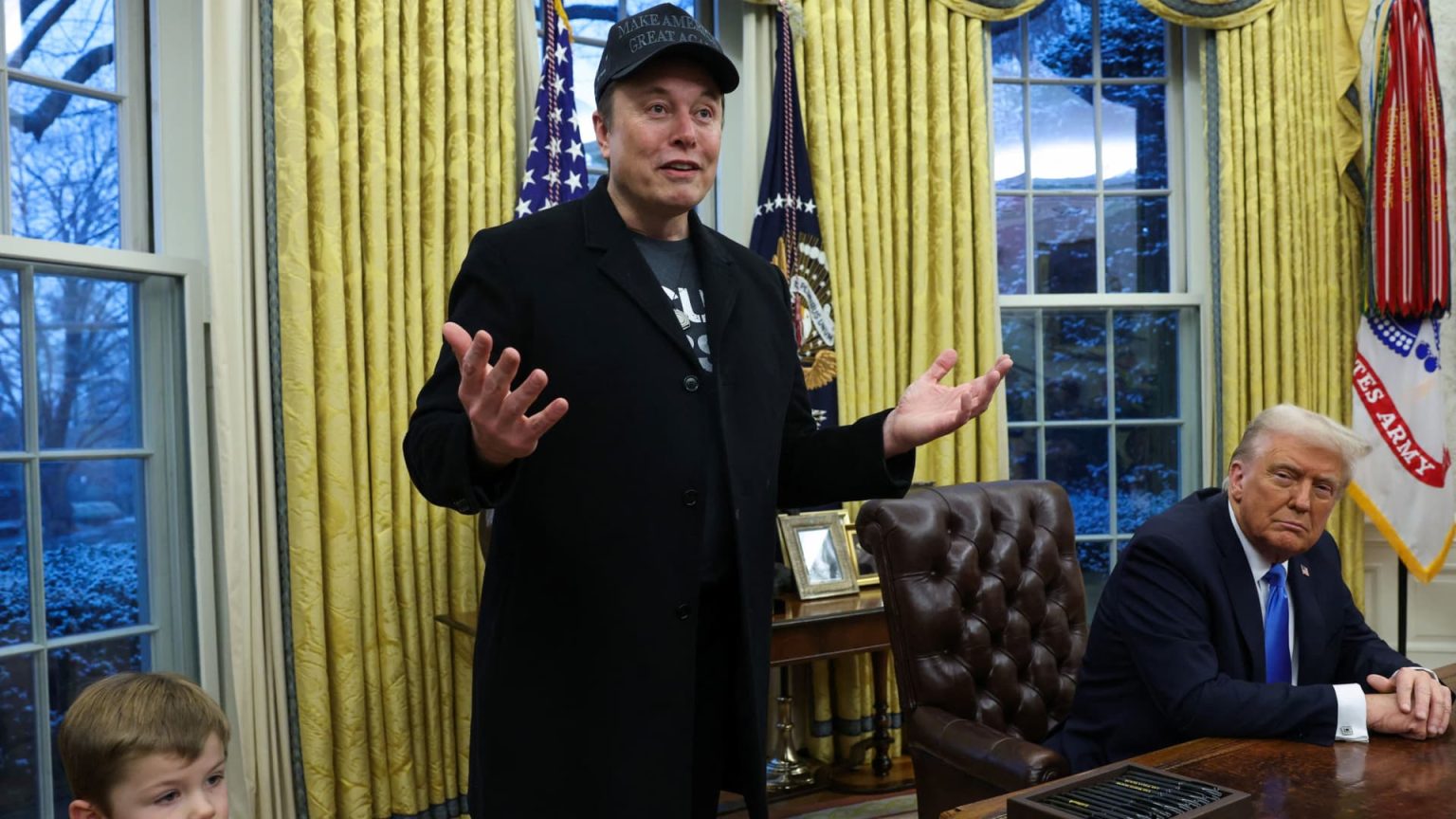In a significant turn of events within the Biden administration, Michelle King, the head of the Social Security Administration (SSA), has departed her position following a controversial request from Elon Musk‘s Department of Government Efficiency (DOGE) for access to sensitive records. The swift move has prompted President Donald Trump to nominate Frank Bisignano as her replacement, a choice expected to navigate through Senate confirmation shortly. This incident raises critical questions about the safeguarding of personal data within government agencies, particularly as the SSA manages information for over 70 million Americans.
| Article Subheadings |
|---|
| 1) Controversial Request and King’s Departure |
| 2) Details Surrounding Sensitive Information |
| 3) Background on Michelle King |
| 4) Government’s Stance on Fraud Prevention |
| 5) Broader Implications of DOGE’s Actions |
Controversial Request and King’s Departure
The departure of Michelle King was confirmed over the weekend amidst rising scrutiny surrounding the moves made by the Department of Government Efficiency (DOGE). Reports indicate that her leaving was triggered by a request from the agency, led by Elon Musk, to access sensitive social security records, which reportedly included Americans’ private information such as bank details and medical records.
“She was replaced as acting commissioner because she would not give access to the sensitive information,”
a source stated, further emphasizing that King’s decision not to acquiesce led to her resignation. This action raises significant concerns over government accountability and data safety, considering the vast personal information held by the SSA.
Details Surrounding Sensitive Information
The sensitive information contained within the SSA includes crucial personal data, such as Social Security numbers, earnings records, marital statuses, and even medical records for those applying for disability benefits. The request from DOGE has sparked outrage among various advocacy groups. Nancy Altman, the president of Social Security Works, has expressed serious concerns about the implications of such access. “The information that the Social Security Administration has is a lot of personal data that most people would like to keep private,” she stated. This breach of trust aligns with broader public fears regarding data privacy, especially when a private entity, led by a controversial figure like Musk, seeks government-held records.
Background on Michelle King
Having served for decades within the Social Security Administration, Michelle King has been a steadfast figure in the agency tasked with managing the welfare of millions. Her leadership role came under the microscope amidst political pressures, particularly as the administration sought to combat fraud within the SSA system. Critics have hailed her commitment to protecting citizens’ private information as a professional triumph. However, her departure now raises questions about the agency’s direction and how it will adapt under new leadership. While Leland Dudek, an anti-fraud expert, has stepped in as acting commissioner, the transition period may destabilize ongoing efforts to improve social security services.
Government’s Stance on Fraud Prevention
President Trump has made combating fraud within the SSA a priority, suggesting that DOGE’s engagement is part of a larger strategy. According to officials, widespread fraud is suspected within the SSA, although a recent report from the SSA’s inspector general indicated that only 0.84% of benefit payments during a recent seven-year period were deemed improper. This paints a complicated picture: while the call for enhanced scrutiny may be justified, the methods being employed raise ethical concerns over privacy and the misuse of sensitive data. The push for tighter control appears to clash with long-standing principles governing how citizen information should be protected by government entities.
Broader Implications of DOGE’s Actions
The fallout from this decision not only spells trouble for the leadership of the SSA but also highlights broader implications for other government agencies. DOGE’s attempts to access sensitive data from various government departments have sparked a series of legal disputes, particularly after their recent access to the Treasury Department’s payment system drew significant backlash. Lawsuits alleging violations of federal privacy laws have prompted the Justice Department to step in, temporarily restraining DOGE’s access to sensitive systems apart from a select few personnel. The actions are seen as part of a growing trend where government oversight is at risk of being compromised under questionable directives.
| No. | Key Points |
|---|---|
| 1 | Michelle King stepped down from her position as head of the SSA after a request from DOGE for access to sensitive records. |
| 2 | The access request involved personal details including Social Security numbers and medical records, sparking privacy concerns. |
| 3 | Frank Bisignano has been nominated as the new head of the SSA, pending Senate confirmation. |
| 4 | Concerns regarding misuse of personal data have been raised by various advocacy groups following King’s resignation. |
| 5 | DOGE’s actions risk compromising the integrity of information security across multiple government agencies. |
Summary
The departure of Michelle King from the SSA marks a pivotal moment in the ongoing tension between government accountability and the protection of citizen data. As President Trump’s administration pushes forward with its anti-fraud initiatives led by DOGE, the balance of safeguarding personal information against the need for increased scrutiny has never been more precarious. The implications of these decisions will likely reverberate throughout government departments, particularly as public trust is tested in the face of potential data breaches.
Frequently Asked Questions
Question: What triggered Michelle King’s departure from the SSA?
King’s departure was reportedly due to her refusal to grant access to sensitive records as requested by Elon Musk’s Department of Government Efficiency.
Question: What kind of sensitive information does the SSA manage?
The SSA manages personal information that includes Social Security numbers, bank information, earnings records, and, in some cases, medical records related to disability benefits.
Question: Who is expected to lead the SSA going forward?
Frank Bisignano has been nominated by President Trump to lead the SSA, with interim leadership provided by Leland Dudek, a manager focused on anti-fraud initiatives within the agency.


